Complete Solutions to EXERCISE (ADDITIONAL EXERCISE) of chapter LAW OF MOTION of Class 11 book with complete answers and questions
| Class 11 | PHYSICS |
| Chapter | LAW OF MOTION |
| NCERT TAMIL | EXERCISE (ADDITIONAL EXERCISE) |
| Number Of Questions | 17 |
| Academic Year | 2023-24 |
Figure shows the position-time graph of a body of mass 0.04 kg. Suggest a suitable physical context for this motion. What is the time between two consecutive impulses received by the body ? What is the magnitude of each impulse ?
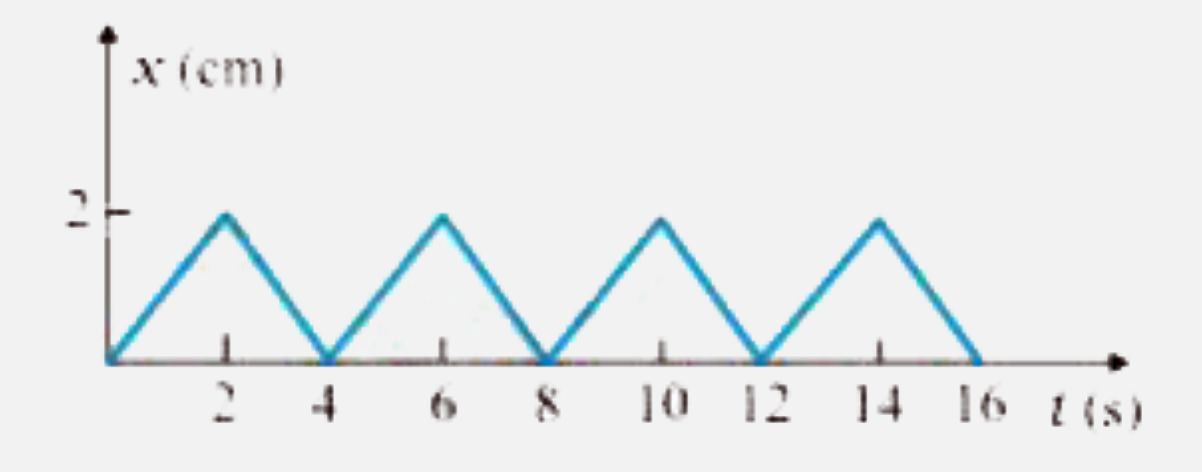
View SolutionFigure shows a man standing stationary with respect to a horizontal conveyor belt that is accelerating with `1 m s^(-2)` . What is the net force on the man? If the coefficient of static friction between the man’s shoes and the belt is 0.2, up to what acceleration of the belt can the man continue to be stationary relative to the belt ? (Mass of the man = 65 kg.)
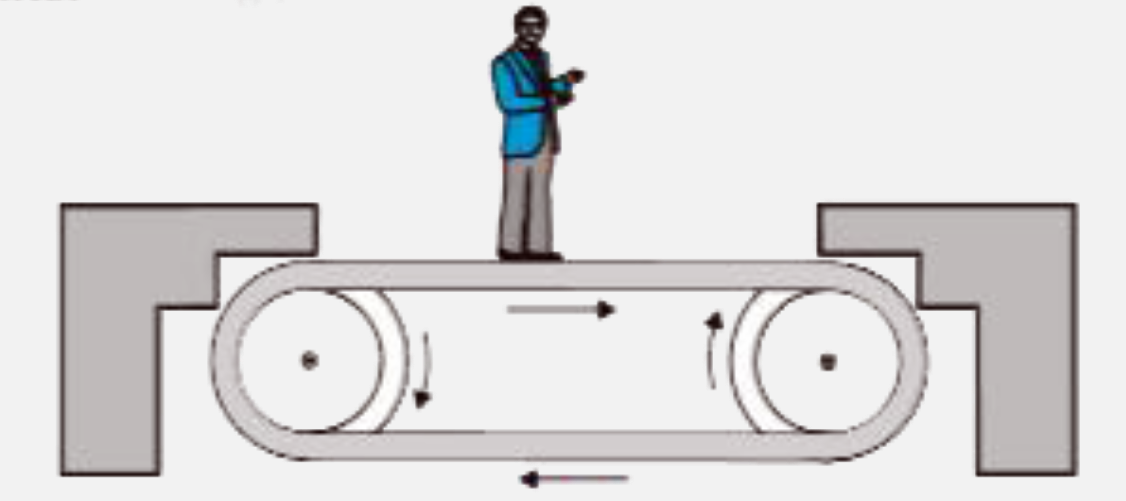
View SolutionA stone of mass m tied to the end of a string revolves in a vertical circle of radius R. The net forces at the lowest and highest points of the circle directed vertically downwards are : [Choose the correct alternative
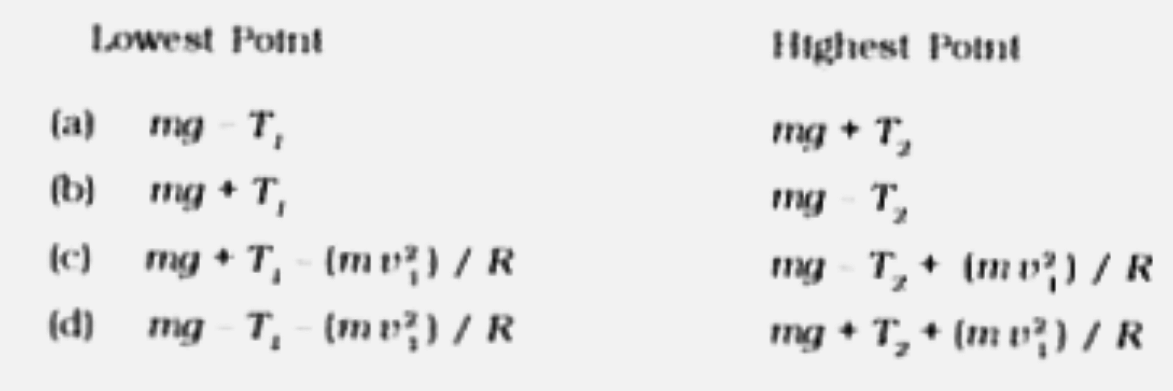
`T_1` and `v_1` denote the tension and speed at the lowest point. `T_2` and `v_2` denote corresponding values at the highest point.
View SolutionA helicopter of mass 1000 kg rises with a vertical acceleration of `15 ms^(-2)` . The crew and the passengers weigh 300 kg . Give the magnitude and direction of the
(a) force on the floor by the crew and passengers
(b) action of the rotor of the helicopter on the surroundings air :
(c ) force on the helicopter due to the surroundings air :
View SolutionA stream of water flowing horizontally with a speed of `15 ms^(-1)` pushes out of a tube of cross sectional area `10^(-2)m^(2)` and hits a vertical wall near by what is the force exerted on the wall by the impact of water assuming.that it does not rebound? (Density of water `=1000 kg m^(3)`)
View SolutionTen one-rupee coins are put on top of each other on a table. Each coin has a mass m . Give the magnitude and direction of
(a) the force on the `7^(th)` coin (counted from the bottom due to all the coins on its top .
(b) the force on the `7^(th)` coin by the eigth coin.
(c ) the reaction of the `6^(th)` coin one th `7^(th)` coin .
View SolutionAn aircraft executes a horizontal loop at a speed of `720 "kmh"^(-1)` with its wings banked at `15^(@)`. What is the radius of the loop ?
View SolutionA train rounds an unbanked circular bend of radius 30 m at a speed of `54 km//h` The mass of the train is `10^(6)` kg What provides the centripetal force required for this purpose ? The engine or the rails ? What is the angle of banking required to prevent out the rails ?
View SolutionA block of mass 25 kg is raised by a 50 kg man in two different ways as shown in Fig. What is the action on the floor by the man in the two cases ? If the floor yields to a normal force of 700 N, which mode should the man adopt to lift the block without the floor yielding ?
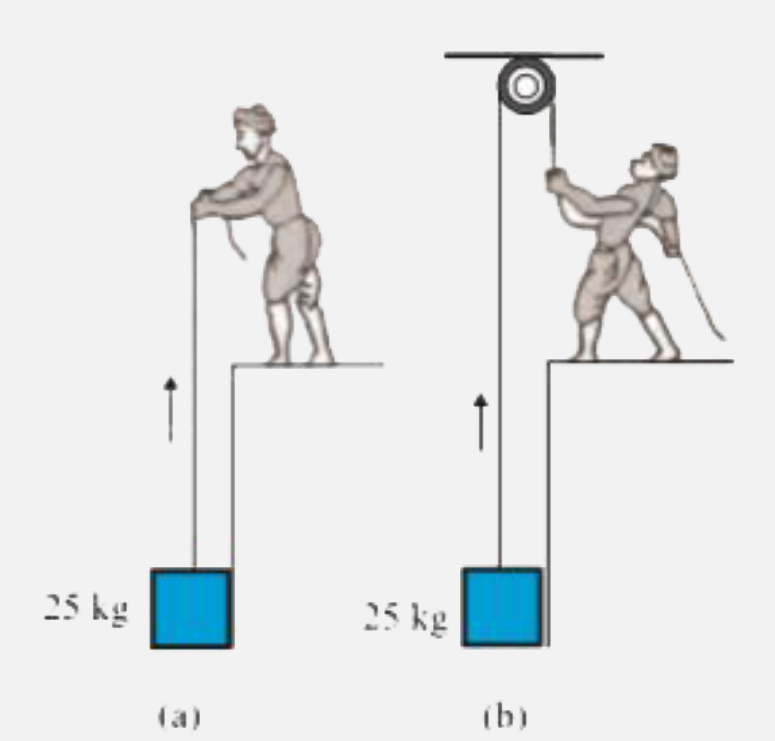
View SolutionA monkey of mass 40 kg climbs on a rope. which can stand a maximum tension of 600 N. In which of the following cases will the rope break: the monkey (a) climbs up with an acceleration of `6 m s^(-2)` (b) climbs down with an acceleration of `4 m s^(-2 )` (c) climbs up with a uniform speed of `5 m s^(-1)` (d) falls down the rope nearly freely under gravity? (Ignore the mass of the rope).
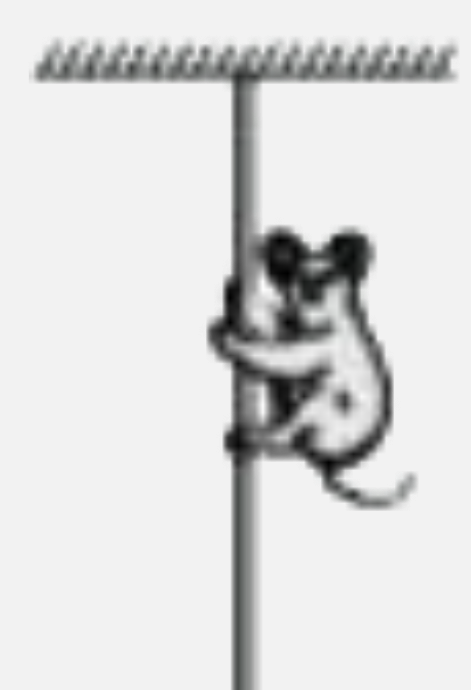
View SolutionTwo bodies A and B of masses 5 kg and 10 kg in contact with each other rest on a table against a rigid wall . The coefficient of friction between the bodies and the table is 0.15. A force of 200 N is applied horizontally to A. What are (a) the reaction of the partition (b) the action-reaction forces between A and B ? What happens when the wall is removed? Does the answer to (b) change, when the bodies are in motion? Ignore the difference between `mu_s` and `mu_k`
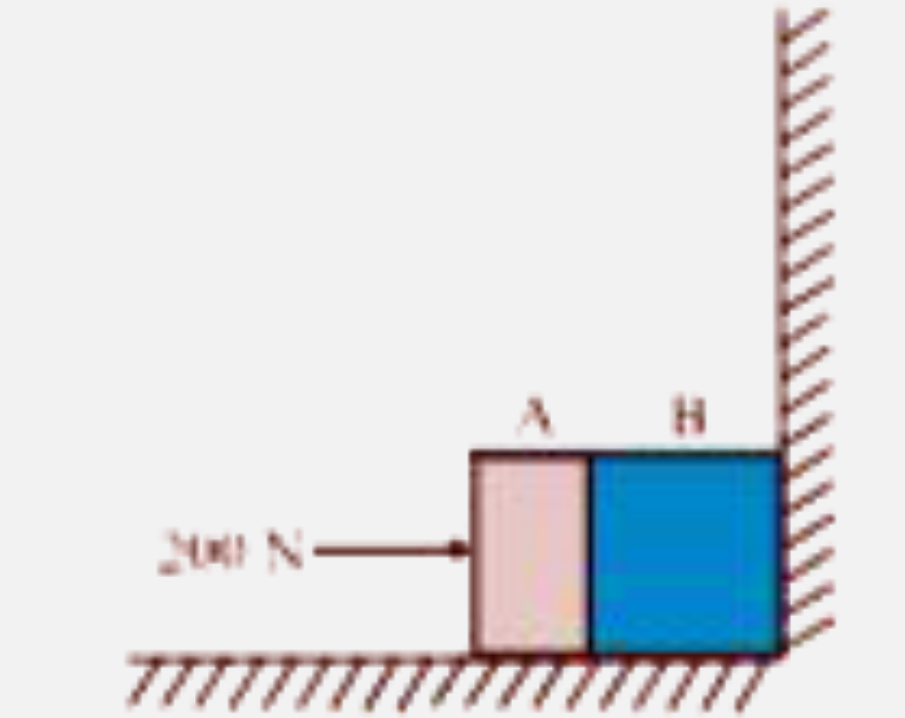
View SolutionA block of mass 15 kg is placed on a long trolly . The coefficient of friction between the block and trolly is 0.18 The trolly accelerates from rest at ` 0.5 m//s^(2) ` for 20 seconds and then moves with a unifrom velocity Discuss the motion of the block as viewed by (i) a stationary observer on the ground (ii) an observer moving with the trolly .
View SolutionThe rear side of a truck is open and a box of 40 kg mass is placed 5 m away from the open end as shown in Fig. The coefficient of friction between the box and the surface below it is 0.15. On a straight road, the truck starts from rest and accelerates with `2 m s^(-2)` . At what distance from the starting point does the box fall off the truck? (Ignore the size of the box).
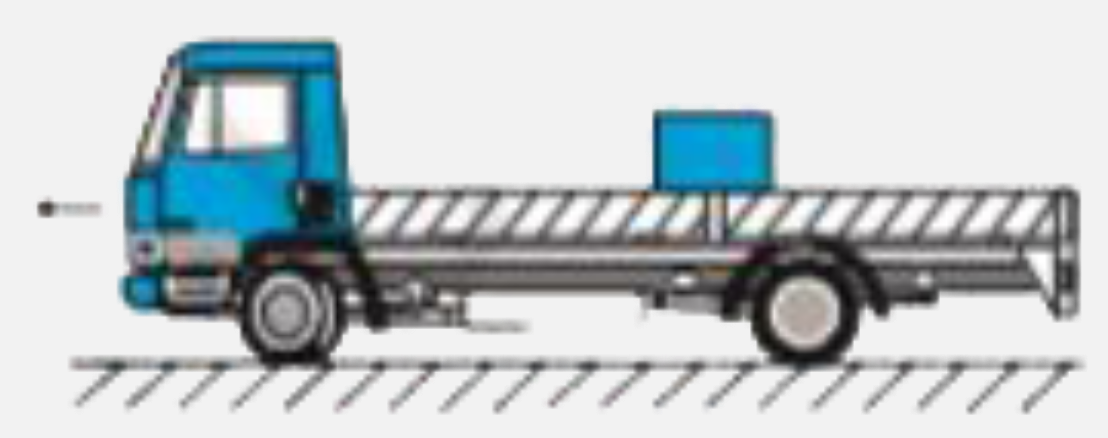
View SolutionA long plying record revolves with a speed of `33 (1)/(3) "rev min"^(-1)`, and has a radius of 15 cm. Two coins are placed at 4 cm and 14 cm away from the centre of the record. If the coefficient of friction between the coins and the record is 0.15, which of the two coins will revolve with the record ? Take `g = 9.8 ms^(-2)`.
View SolutionYou may have seen in a circus a motorcyclist driving in vertical loops inside a death well (a hollow spherical chamber with holes so the spectators can watch from outside) Explain clearly why the motorcyclist does not drop down when he is at the uppermost point of death well with no support from below What is the minimum speed required at the uppermost position to perfrom a vertical loop if the radius of the chamber is 25 m ?
View SolutionA `70kg` man stands in contact against the inner wall of a hollow cylindrical drum of radius `3m` rotating about its verticle axis. The coefficient of friction between the wall and his clothing is `0.15` . What is the minimum rotational speed of the cylinder to enable the man to remain stuck to the wall (without falling) when the floor is suddenly removed?
View SolutionA thin circular wire of radius `R` rotatites about its vertical diameter with an angular frequency `omega` . Show that a small bead on the wire remain at its lowermost point for `omegalesqrt(g//R)` . What is angle made by the radius vector joining the centre to the bead with the vertical downward direction for `omega=sqrt(2g//R)` ? Neglect friction.
View Solution
EXERCISE (ADDITIONAL EXERCISE) questions and complete solutions for chapter LAW OF MOTION of FULL MARKS PHYSICS(TAMIL) of Class 11